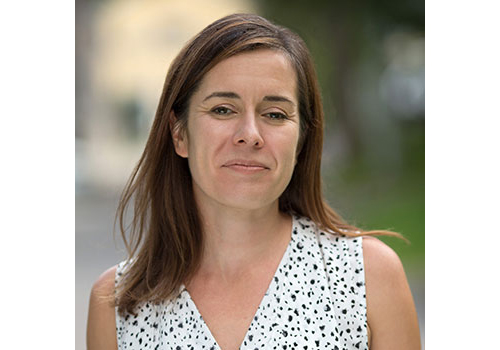
Laurier Associate Professor Jennifer Baltzer named Canada Research Chair in Forests and Global Change
WATERLOO – Ecologist Jennifer Baltzer has been named the Canada Research Chair (CRC) in Forests and Global Change. An associate professor in Wilfrid Laurier University’s Department of Biology, Baltzer’s research as a tier one chairholder will examine how the effects of climate change, including the intensification of wildfires, will impact forest ecosystems in Canada’s North.
This article is from Wilfrid Laurier University on June 2, 2022.
Click here to see the original article.
WATERLOO – Ecologist Jennifer Baltzer has been named the Canada Research Chair (CRC) in Forests and Global Change. An associate professor in Wilfrid Laurier University's Department of Biology, Baltzer's research as a tier one chairholder will examine how the effects of climate change, including the intensification of wildfires, will impact forest ecosystems in Canada's North.
The prestigious CRC program aims to attract and retain some of the world's most accomplished and promising minds. Baltzer will receive research funding for a seven-year term, including support for Laurier student researchers.
"I have had the opportunity to spend the past decade building relationships with government and community partners in the Northwest Territories," said Baltzer. "My team and I have focused on understanding key drivers of landcover change that are occurring rapidly in the North with profound consequences for northern communities and ecosystem functioning. I am looking forward to advancing these research efforts and strengthing northern partnerships through this CRC".
Climate warming is occurring most rapidly in Northern Canada, intensifying natural disturbances and driving changes to the structure, composition and function of northern boreal forests. Baltzer's CRC program will focus on two specific disturbances: permafrost thaw and wildfire, the most important drivers of change in high-latitude ecosystems.
Baltzer and her team will combine field-based studies, long-term data sets and existing knowledge to advance future forecasting efforts. Their research will evalulate the rate, trajectory and implications of forest ecosystem changes, providing knowledge and predictive tools to support decision-making by northern communities and governments.
"Dr. Baltzer has become a recognized world leader in boreal forest research through her unique research program, national and international leadership roles, and efforts to ensure that her research is applicable to communities and decision-makers across the North," said Jonathan Newman, Laurier's vice-president: research. "She is a critical contributor to Laurier's successful research partnership with the Government of the Northwest Territories, with a strong focus on supporting capacity building and knowledge sharing in local Indigenous communities."
A prolific researcher, Baltzer has written more than 63 peer-reviewed publications in her career to date. Among her notable contributions are a 2021 study published in the Proceedings of the National Academy of Sciences which found that increasing fire activity due to climate change may lead to declining black spruce populations in boreal North America; and a 2019 Nature article which found that extreme fires in Canada's North are both caused by and contributing to climate change, and that carbon stored for centuries in the soils of boreal forests will be released by more severe and frequent wildfires as the climate warms.
Baltzer's most recent leadership roles include contributions to NASA's Arctic Boreal Vulnerability Experiment and the Smithsonian Forest Global Earth Observatory Network. She leads the multi-million-dollar Northern Water Futures project, which is funded by Global Water Futures, the largest university-led water resources program in the world. As part of her CRC program, Baltzer will serve as the Government of the Northwest Territories-Laurier partnership faculty liaison. She will bring the perspectives of northern researchers to strategic partnership planning discussions and enhance communication and coordination of partnership activities between the growing number of participating Laurier faculty members and research centres.
Baltzer has won several prestigious awards for her outstanding scholarship, including the Ontario Early Researcher Award, Laurier's University Research Professor Award, and membership in the College of New Scholars, Artists and Scientists of the Royal Society of Canada.
